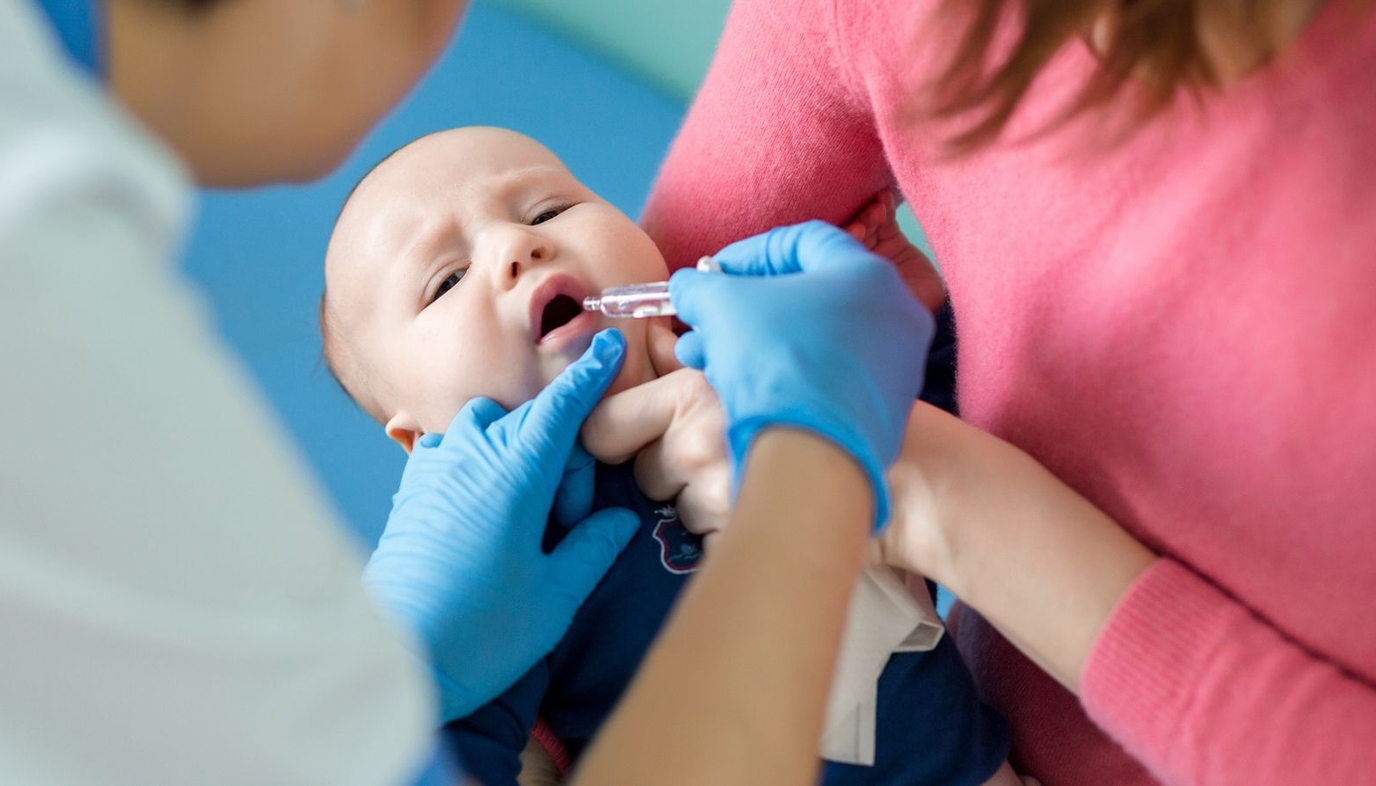
One major change to the schedule was the addition of the live oral Rotavirus vaccine. It is recommended to be given at 2, 4, and 6 months of age.
According to The Centers for Disease Control, Rotavirus is the most common cause of severe diarrhea among children worldwide. Approximately 55,000+ children end up being hospitalized yearly in the United States alone due to complications from the virus.
Research from the FDA lists over three million cases of Rotavirus occurring annually in the United States. Every child is at risk.
What Exactly Is Rotavirus?
The name Rotavirus is derived from the Latin Rota or wheel. When looking at the virus under a microscope, it has the appearance of tiny wheels.
Rotavirus is a highly contagious virus that affects the bowels. The incubation period - or the time from acquiring infection to initial symptoms - is approximately two days. Children display fever, vomiting, and watery diarrhea. These episodes can last for a few days to over a week. It is possible to be re-infected with the virus although repeated exposure usually leads to less severe symptoms. You can not build up complete immunity to the virus from exposure.

The reason this particular virus has the potential to be very dangerous is the threat of severe dehydration. It does not take infants and young children long to become dehydrated. Young infants especially, who’s only intake is fluids are at an even greater risk for complications.
Rotavirus is a threat to everyone-not just children. Adults can suffer from the same illness. It tends to be less severe in adults due to stronger immune systems and dehydration not being as much of a threat.
The Warning Signs of Dehydration:
- Less frequent urination or wet diapers.
- Dry mucus membranes (gums)
- Tearless cries
- Sunken soft spots on your baby’s head
How is Rotavirus Acquired?
Generally, Rotavirus is passed on from the feces of an infected person. Children generally acquire it by placing their contaminated hands in their mouths. It’s important to remember that virtually any surface has the potential to be a contaminated area. All a child needs to do is touch that surface and then place their hands in their mouths.
The best way to cut down the chances of your child acquiring the Rotavirus is practicing good hand washing, especially after using the restroom. Unfortunately, one of the favorite past times of most young children is either placing their hands in their mouths, or placing many objects in their mouths. It’s almost impossible to ensure your child’s hands or objects around them stay clean. Frequent washing does help cut down the risk.

There is no formal treatment for the Rotavirus. Since it is a virus, antibiotics have no effect. The only course of action is to provide plenty of fluids and rest for your sick child. Drinks fortified with electrolytes will help cut down on your child’s chances of becoming dehydrated. As stated earlier, if your young child/infant has acquired Rotavirus, take extra steps to try and prevent dehydration.
In the past, children were given the Rotavirus vaccine ‘Rotashield’ but in 1999, it was pulled from the market. It was estimated that 1 out of every 12,000 children immunized with Rotashield developed intussusceptions or a bowel obstruction.
The two latest oral vaccines ‘Rotarix’ by GlaxoSmithKline and Rotateq by Merck Inc., both currently recommended for routine inoculation, had zero incidence of intussusceptions during clinical trials.
After the FDA approved their usage, 28 recorded cases of intussusceptions have been documented and are currently being investigated to see if there is a link to the vaccine and the bowel obstruction.
All vaccines come with risks. It is our job as parents to become educated on matters that affect our children’s health. Certain vaccines are recommended by major medical organizations for every child to help keep them healthy. Some children do have difficulties with them or vaccines go against the parents beliefs. You need to assess the risks and benefits of vaccines and illnesses and choose what is best for your children and your family. Of course, discuss any questions or concerns you have with your pediatrician.
© Rebecca Pillar 2007
